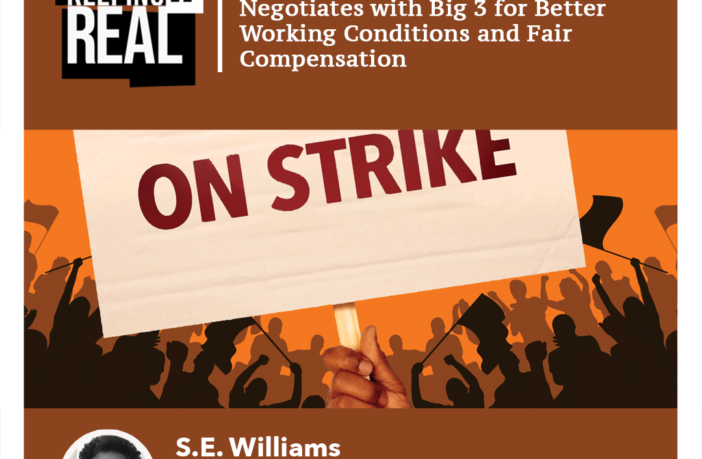Last Updated on September 26, 2023 by BVN
S.E. Williams
When the United Auto Workers (UAW) walked off the job at selected facilities recently, it was just the latest occurrence of workers putting their employers on notice that enough is enough.
There have been more than 287 labor driven actions at no less than 452 locations across the country this year as of September 25 and the Labor Department notes that 4.1 million work days were lost in August due to strikes–the highest since August 2020 according to a Wall Street Journal report.
Labor actions in 2023, however, are not an aberration. The number of workers involved in a major strike (involving at least 1,000 workers) increased by 50% in 2022 compared to 2021, Bureau of Labor Statistics’ data shows.
As the UAW negotiates with the auto industry’s Big 3 including Ford, General Motors and Stellantis, the union is calling its strategic approach to the action a “stand up strike”. Currently only three plants in three different states are impacted but according to UAW president, Sawn Fain, however other locations could and are expected to strike at any time.
In addition to pay raises, the workers are seeking restoration of cost-of-living adjustments; a secure pension and increased retiree pay; in addition to the right to strike over plant closures; protection for temporary workers; and more paid time off.
“The only thing workers have to bargain with is their skill or their labor. Denied the right to withhold it as a last resort, they become powerless. The strike is therefore not a breakdown of collective bargaining-it is the indispensable cornerstone of that process.”
Paul Clark
It is a laundry list of requests that could be part of almost any union negotiation in today’s economy.
Unions, once deemed the savior of working people, began to lose their power and popularity in the 70s but as the economy globalized, technology expanded and the service sector became most prominent in the world of work shifting the workforce and the way labor unions needed to operate in response.
Even as technology and the global economy has changed the world for workers, some things remain consistent—–people have a right to safe working conditions, a harassment free environment and fair compensation.
COVID-19 taught hard lessons about work place safety and when it come of fair compensation it is disturbing to see corporate profits skyrocket along with executive compensation while workers continue struggle to afford housing or pay far too large a share of their income for housing, gasoline prices are skyrocketing, healthcare costs are expected to spike, and food prices remain high.
In my estimation what workers are asking for is reasonable but I also know the corporations will never absorb the cost(s) of whatever agreements are made nor will any executive give up a dime from next year’s compensation and/or bonus. What normally occurs is that these costs are passed along to the consumer in even higher prices and of course, once again the wages will not keep pace. This is capitalism where those who have will always win and everyone else will pay for their games and their gains. There must be a better way.
Of course this is just my opinion. I’m keeping it real.



